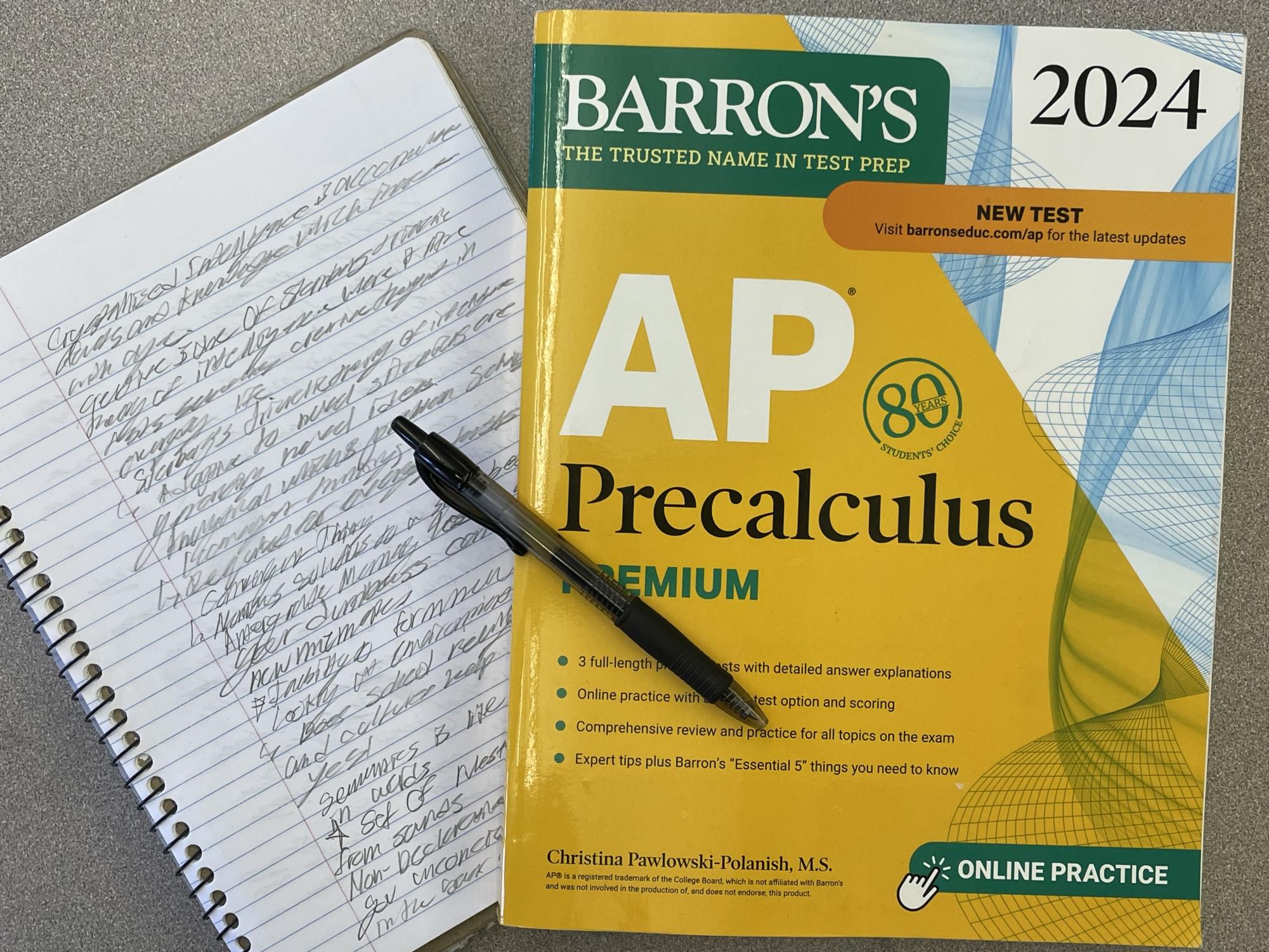AP exams are on their way, with the first day of AP testing being about a week away. Although the studying journey for whichever AP exams you might be studying for is supposed to begin long before the time you’re reading this, the studying tips in this article could help enhance the last bit of studying you probably have left. This doesn’t apply to only AP exams; you can use this advice for any exam, test, or quiz you might have in the future.
Figuring out how to study in the most effective way calls for a lot of trial and error. Some people are fine with a simple deck of flashcards or using a quizlet, while others don’t even bother studying until the final moments before their test, and there are always those who pull all-nighters cramming weeks’ worth of learning material into one night. It might be difficult to find what works best for you, but by reading this, you’ll find some strategies to make your study sessions better than they’ve ever been. Although the most effective methods of studying truly depend on yourself, the advice provided here can be helpful to anyone and enhance how you study.
To start, you need to sleep. Although many students have pulled all-nighters or stayed up really late in order to cram a good study session into their night, this is actually counterproductive. Not getting enough sleep can lead to a lower academic performance. Lack of sleep affects the hippocampus, a part of the brain that is crucial for learning and memory. Essentially, the longer you stay up, the harder it becomes to retain information. So even though you may feel like you need to stay up just a bit longer to get a few more topics down, you aren’t really learning anything by doing this. Sleep deprivation can also affect many cognitive functions, like your problem-solving skills, which are crucial when taking a test. So if you’re staying up late studying for a test, not only are you failing to retain the information, but you’re also setting yourself up to possibly do worse. Getting adequate sleep can enhance your cognitive abilities to focus better. During your sleep, your brain is still processing information and is consolidating new information and memories. If you prioritize getting a good amount of sleep as a part of your study routine, you’ll find yourself functioning better.
Have you ever found yourself in the middle of a test struggling to remember the answer of a question, and it seems like you can remember exactly what you were wearing, what page of the textbook you were on, what section of the notes the answer was on, and practically every small detail of the setting you were in when you learned the information but not the information itself? This is something that a lot of students face, often occurring from a recollection failure. When you are unable to retrieve information from your memory despite knowing that you learned it before is a recollection failure. This can happen when the memory trace is very weak. You want recollection, also known as recall or retrieval, to happen when trying to remember a topic for a test so that way you can almost perfectly remember the material and its details to get a high score. If you’re remembering everything about the setting you were in rather than the fact itself, you’re likely experiencing recognition rather than recollection when studying. Recognition is simply just identifying the topic, and it can hurt your grade depending on the severity of what you can or can’t remember. To prevent recognition and allow for recollection, make sure to know the concept and not just the fact of the information you are reviewing. Essentially, engage yourself with the material in a meaningful way. This is called deep processing. Deep processing helps in better understanding, which can enhance recollection. A few methods of this include making the material you learn meaningful. You can do this by relating the information to your own life experiences or a person you know experiences, or pretty much in any way that makes it truly meaningful to yourself. Another method could be expanding and creating depth to your notes; oftentimes when taking notes we summarize what’s being said to make the note-taking process more efficient, so when studying you can expand on the information and create depth to it. If you want to actively see what you don’t know about the material you’re studying for, try explaining it to another person. You can’t teach someone if you yourself don’t really know what you’re talking about.
When it comes down to your study routine, I highly recommend the Pomodoro Technique. This technique involves breaking your study time into intervals, usually 25-30 minutes long. Breaking your work into manageable chunks and providing regular breaks to prevent burnout goes a really long way. Personally, I can’t study for more than an hour without getting antsy, easily distracted, tired, or overwhelmed. To use the Pomodoro Technique effectively when studying, you should set a timer for 25-30 minutes and commit to working on one exclusive task until the timer goes off. During this time, try your best to avoid all distractions such as social media. When the timer finally does go off, take a short 5-minute break. Use this break wisely, because once the five minutes is over you’re going to repeat the cycle and work for another 25-30 minutes. Using the Pomodoro technique can help with focusing and productivity when it comes to studying.
If you’re having trouble remembering certain things, there are strategies that can help you encode information easily. Looking at or skimming material right after you learned it is one of these. Doing this allows for immediate reinforcement, which helps to solidify the information into your memory. It also clarifies anything you might’ve been confused about since the material is still fresh in your brain. Doing this can also prepare you for your studying later on, since it’s basically providing an overview of what topics were covered in class. Your brain is also actively processing the information when you reread the notes, which can help in retention of information and understanding. Another strategy is using mnemonic devices. Mnemonics help you remember information more effortlessly by associating it with easily remembered cues. Common mnemonic techniques include creating an acronym (like PEMDAS), turning information into catchy rhymes or songs, or the keyword method which is associating unfamiliar words with phrases that literally sound similar. Using these strategies can optimize your learning process and make studying less stressful.
Studying can be stressful, but applying this advice and incorporating the strategies spoken about can alleviate some of that stress and make your study session a steady, productive, and enjoyable experience. Remember, finding what works best for you requires trial and error, but all of these strategies can slowly but surely improve your study sessions. Good luck studying Tartars!






